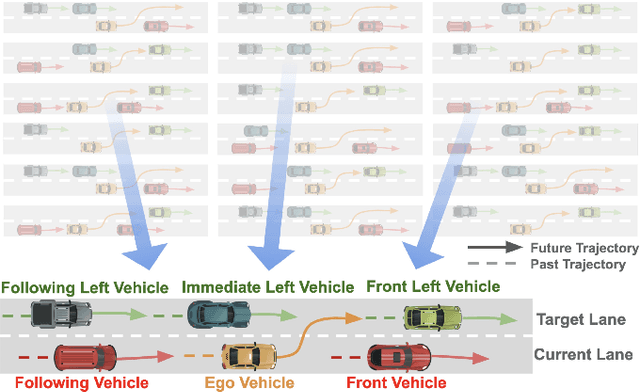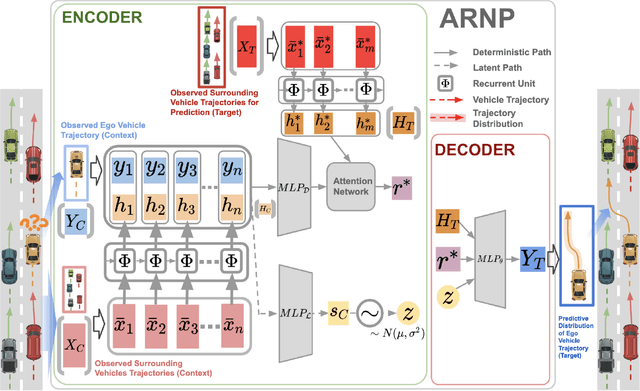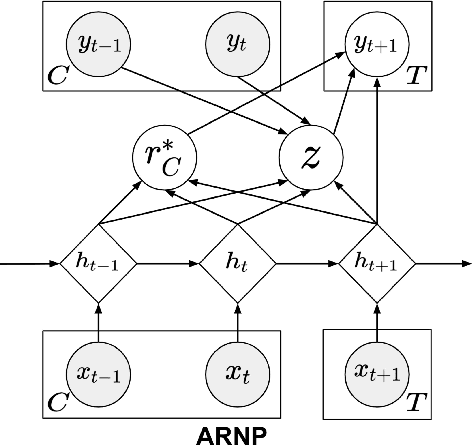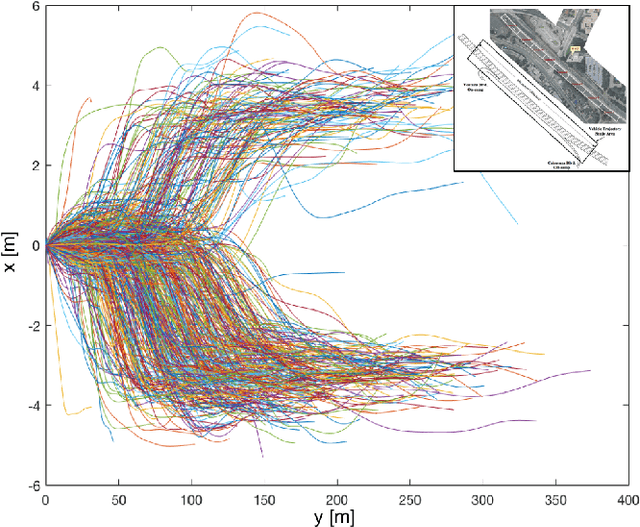Probabilistic Trajectory Prediction for Autonomous Vehicles with Attentive Recurrent Neural Process
Paper and Code
Oct 17, 2019



Predicting surrounding vehicle behaviors are critical to autonomous vehicles when negotiating in multi-vehicle interaction scenarios. Most existing approaches require tedious training process with large amounts of data and may fail to capture the propagating uncertainty in interaction behaviors. The multi-vehicle behaviors are assumed to be generated from a stochastic process. This paper proposes an attentive recurrent neural process (ARNP) approach to overcome the above limitations, which uses a neural process (NP) to learn a distribution of multi-vehicle interaction behavior. Our proposed model inherits the flexibility of neural networks while maintaining Bayesian probabilistic characteristics. Constructed by incorporating NPs with recurrent neural networks (RNNs), the ARNP model predicts the distribution of a target vehicle trajectory conditioned on the observed long-term sequential data of all surrounding vehicles. This approach is verified by learning and predicting lane-changing trajectories in complex traffic scenarios. Experimental results demonstrate that our proposed method outperforms previous counterparts in terms of accuracy and uncertainty expressiveness. Moreover, the meta-learning instinct of NPs enables our proposed ARNP model to capture global information of all observations, thereby being able to adapt to new targets efficiently.
 Add to Chrome
Add to Chrome Add to Firefox
Add to Firefox Add to Edge
Add to Edge